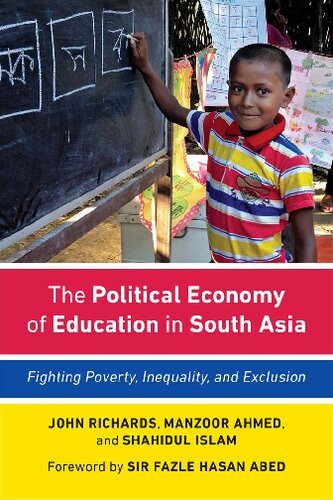

Most ebook files are in PDF format, so you can easily read them using various software such as Foxit Reader or directly on the Google Chrome browser.
Some ebook files are released by publishers in other formats such as .awz, .mobi, .epub, .fb2, etc. You may need to install specific software to read these formats on mobile/PC, such as Calibre.
Please read the tutorial at this link: https://ebookbell.com/faq
We offer FREE conversion to the popular formats you request; however, this may take some time. Therefore, right after payment, please email us, and we will try to provide the service as quickly as possible.
For some exceptional file formats or broken links (if any), please refrain from opening any disputes. Instead, email us first, and we will try to assist within a maximum of 6 hours.
EbookBell Team

4.0
66 reviewsWith the exception of Sri Lanka, South Asian countries have not achieved quality basic education – an essential measure for escaping poverty, inequality, and social exclusion. In The Political Economy of Education in South Asia, John Richards, Manzoor Ahmed, and Shahidul Islam emphasize the importance of a dynamic system for education policy.
The Political Economy of Education in South Asia documents the weak core competency (reading and math) outcomes in government primary schools in India, Pakistan, Bangladesh, and Nepal, and the consequent rapid growth of non-government schools over the last two decades. It compares the training, hiring, and management of teachers in South Asian schools to successful national systems ranging from Singapore to Finland. Discussing reform options, it makes the case public good and public priorities are better served when both public and non-government providers come under a strong public policy and accountability framework.
The Political Economy of Education in South Asia draws on the authors' broad engagement in education research and practice in South Asia, as well as analysis by prominent professors of education and NGO leaders, to place basic education in a broad context and make the case that universal literacy and numeracy are necessary foundations for economic growth.